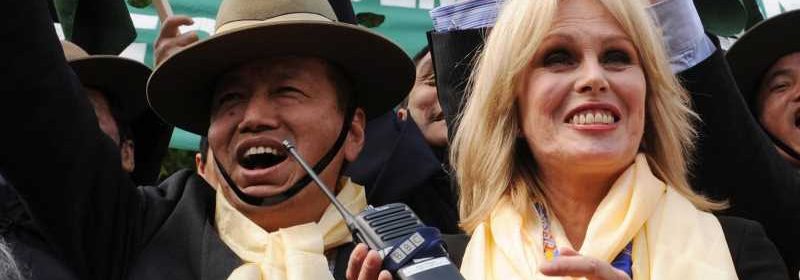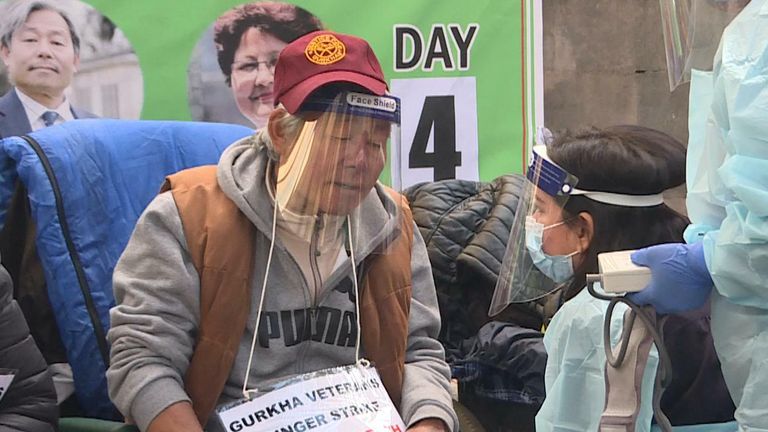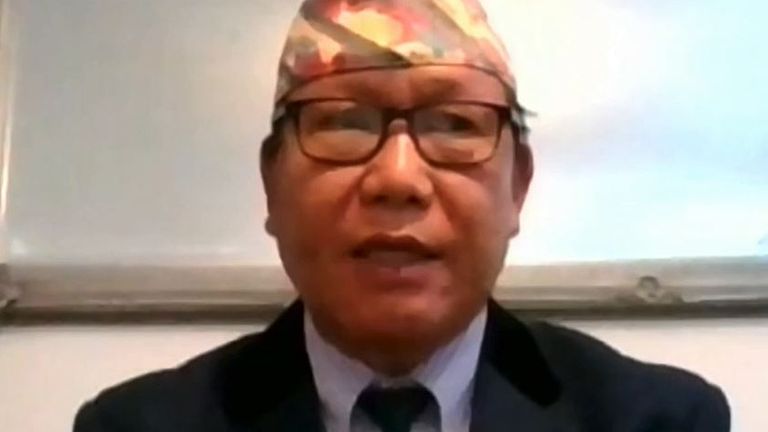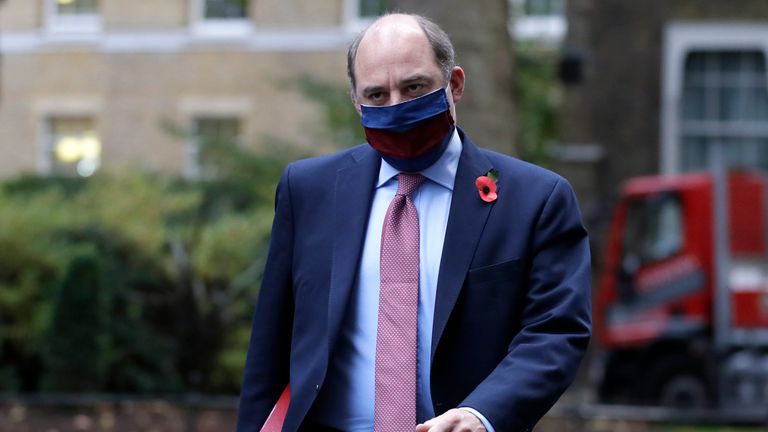Joanna Lumley urges government to meet ‘brave and loyal’ Gurkhas veterans staging hunger strike opposite Downing Street over pensions

Joanna Lumley has called on the government to meet the “brave and loyal” Gurkha veterans who are currently on hunger strike opposite Downing Street over their pensions.
Protesters have been camped in Whitehall for nine days now.
According to the Support Our Gurkhas website, the hunger strikers are campaigning for equal pensions for Gurkhas who retired before 1997 and are not eligible for a full UK Armed Forces pension.
The actress and campaigner said ministers “cannot praise our veterans to the high heavens when it suits them, but ignore them and condemn them to poverty when it doesn’t”.
Gurkhas are Nepalese-born soldiers who have been recruited into the British army since 1815, fighting most recently in Iraq, Afghanistan and the former Yugoslavia.
Ms Lumley led a successful campaign to get Gurkhas settlement rights in Britain.
The 75-year-old’s father was a major in the Gurkha Rifles and she was born in India and moved to England as a child.
She said: “Seeing such brave and loyal Gurkha British Army veterans feeling they have no option but to take the drastic step of entering a hunger strike will be deeply upsetting to the vast majority of the public who understand the special place that all veterans have in our hearts, in our thoughts and the life of the nation.
“Only a deep sense of injustice could drive these brave and respectful souls to this point.
“At the heart of this matter is how we value those who have offered, and sometimes given, the ultimate sacrifice to protect our way of life and to keep us safe.
“I urge the government to meet these veterans and to cut through the morass of detail surrounding the complexity of the various pension schemes and find some way to address the injustices highlighted.”
Defence Secretary Ben Wallace told Sky News on Friday that he was happy to meet the Gurkhas.
But in a sign that the government will not meet the demands of the protesters, he added that no government “of any colour” had made retrospective changes to pensions similar to the ones the Gurkhas are calling for.
“I am very happy to meet any Gurkha. My father fought alongside the Gurkhas in Malaya in the 1950s, it is a pretty remarkable group of people,” the defence secretary told Kay Burley.
“The group of people currently protesting are groups affected by the change by the Labour government in 1997 to 2003.
“This was about people who are under a 1947 pension, it is a very small group of Gurkha pensioners, they had different advantages in their pension scheme in that old scheme.
“That scheme said that you got it after 15 years when a British soldier got it after 22, but there is a difference and they feel that difference needs to be made up.
“That is not the same as the Gurkhas of today or the Gurkhas after 2003, they get exactly the same pensions as British serving personnel, but of course no government of any colour, Labour or Conservative, or coalition, has ever retrospectively changed pensions, that has not been the case.”
Gurkhas who served from 1948 to 2007 were members of the Gurkha Pension Scheme (GPS).
This was closed in 2007 and all serving Gurkhas or those who retired after 1 July 1997 were given the option of transferring to the Armed Forces Pension Scheme (AFPS).
The date 1 July 1997 is when the Gurkhas became based in the UK and no longer classified as a Far East-based force.
Under the GPS, Gurkhas qualify for an immediate pension after 15 years of service, while for armed forces as a whole it is 22 years.
This can mean some Gurkhas will have been receiving pension payments for more than 20 years before many British soldiers of the same rank and length of service qualify for payments as part of the AFPS.
The GPS was based on the Indian Army model and was designed for Gurkhas retiring back to Nepal, where the cost of living is much lower than in the UK.
However, many of those Gurkhas will have taken up the right to settle in the UK following the change of policy under the Labour government in 2009.
Pensions under the GPS were increased by between 10% and 34% in 2019, while £25m was invested in medical and healthcare facilities in Nepal for Gurkha veterans.
A public consultation on the latest changes to the scheme ended in March and the government is currently considering the size of the uplift that will be applied to the pensions.
The issue has been the subject of long-running campaigning over the years.
Responding to calls for reform in 2010, Labour defence minister Kevan Jones described the GPS as “good and fair” and said the MoD’s position on the matter was “legally and morally sound and beyond reproach”.
The exclusion of Gurkhas who served before 1 July 1997 has also been challenged in the courts, with the European Court of Human Rights ruling in 2016 that the move was “objectively and reasonably justified”.
Source: Read Full Article



